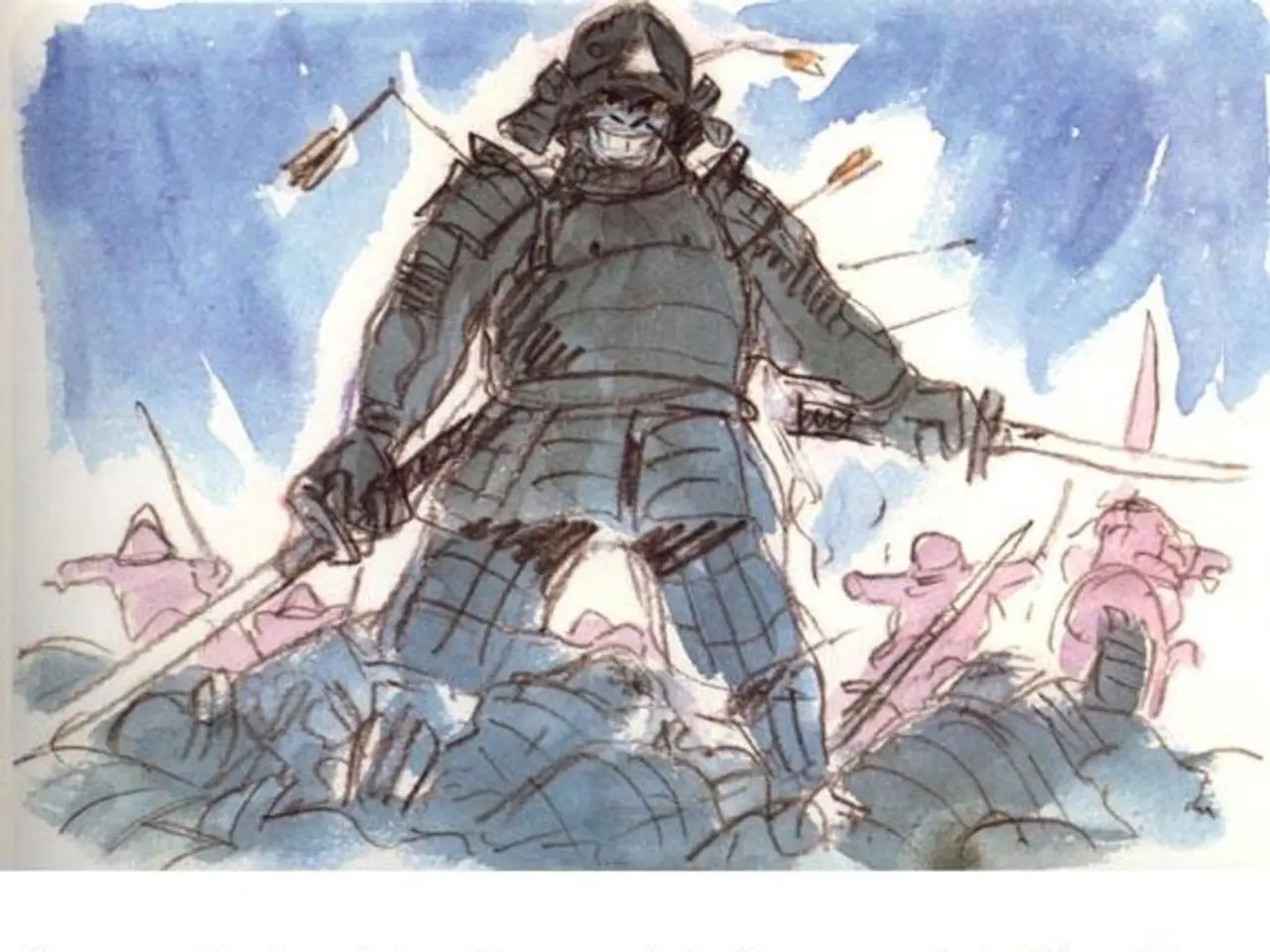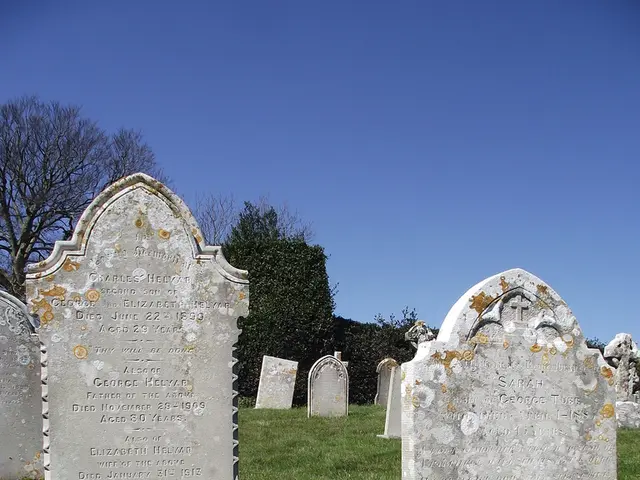Pursued liberty
In the waning days of World War II, a group of 27 German soldiers, known as the "27 deserters in the Großes Walsertal," took a stand against the Nazi regime by abandoning their posts and seeking refuge in the picturesque valley region of Vorarlberg, Austria.
These brave men, who were conscripted into the Wehrmacht, faced severe consequences under Nazi military law for desertion. However, their actions were met with sympathy by the local population, who were weary of further conflict and the devastation it brought.
One of these deserters was Jakob Domig, a native of Buchboden, who was just 18 years old when he was conscripted in October 1942. He was assigned to the Mountain Jäger Regiment 138, stationed in Rijeka. During his leave, Jakob spoke about the hardships he had endured in the East and showed no desire to return to the war.
Tragically, Jakob's resistance came at a cost. In September 1944, he was fatally shot by gendarmes during an incident at the Blons gendarmerie post, where he was suspected, along with Tobias Studer, of being deserters.
Tobias, however, managed to escape before Wehrmacht soldiers and the home guard arrived. He hid under the roots of a fallen tree and covered himself with moss until the search for him was called off.
After the war ended, Jakob's body was exhumed and reburied in the family grave in Buchboden in 1948. Despite this, his name was omitted from the memorial cross for the fallen soldiers from Buchboden.
The fate of the other 26 deserters remains largely unknown, but some local accounts and historical research suggest that they were hidden or protected by the sympathetic residents of the Großes Walsertal. After the war, the broader amnesty and collapse of the Nazi military structure meant that many deserters, including the men of the Großes Walsertal, avoided punitive measures that would have been imposed during the war.
This incident serves as a poignant reminder of the complex wartime experiences in Austria’s rural areas and is sometimes cited as an example of resistance, albeit non-violent and passive, against the Nazi regime. For more detailed information, including names or personal stories, local historical archives in Vorarlberg or memorials related to WWII deserters in Austria might have more comprehensive records.
Jakob Domig was one of eleven siblings, with brothers Arnold, older than him, and another who had fallen at the Eastern Front in 1942. The Domig family lived on the parental farm with Jakob, along with his brothers Franz Josef and Arnold, and sisters Hedwig and Anna.
Though their names and stories have remained mostly untold, the actions of these 27 deserters in the Großes Walsertal stand as a testament to the human spirit's resilience and the desire for peace in even the darkest of times.
Read also:
- United States tariffs pose a threat to India, necessitating the recruitment of adept negotiators or strategists, similar to those who had influenced Trump's decisions.
- Weekly happenings in the German Federal Parliament (Bundestag)
- Southwest region's most popular posts, accompanied by an inquiry:
- Discussion between Putin and Trump in Alaska could potentially overshadow Ukraine's concerns








